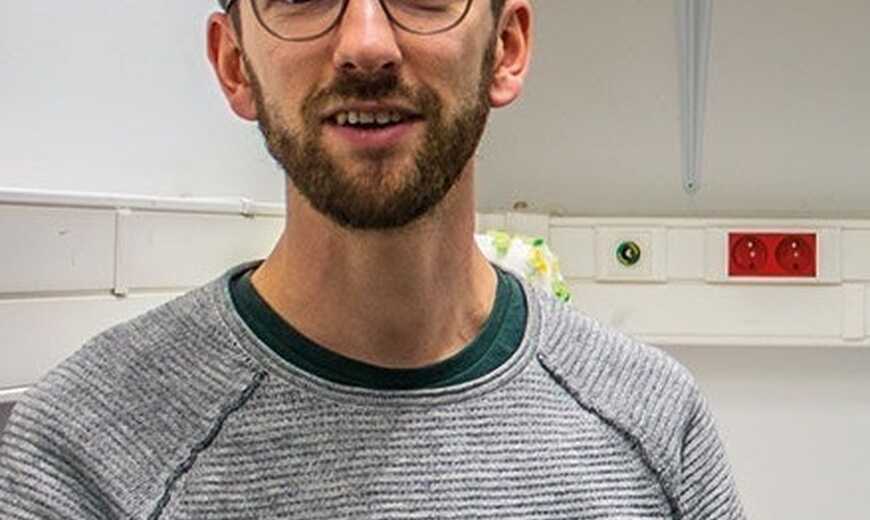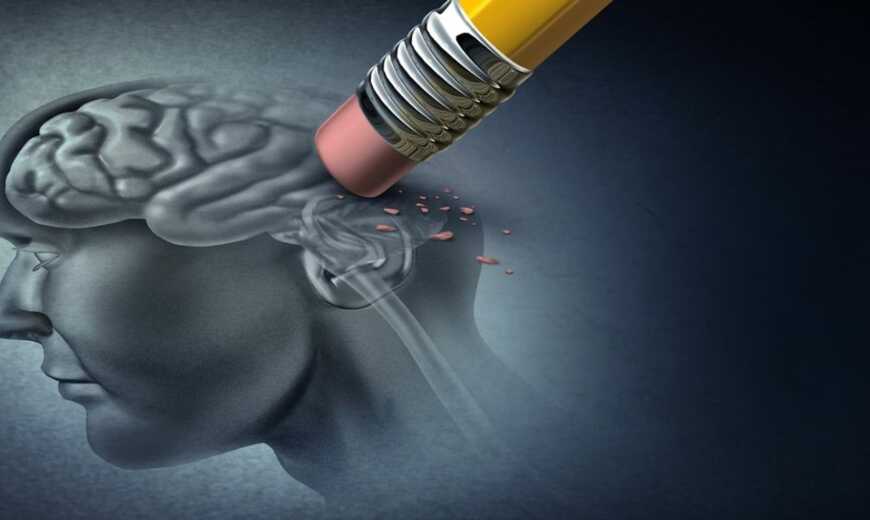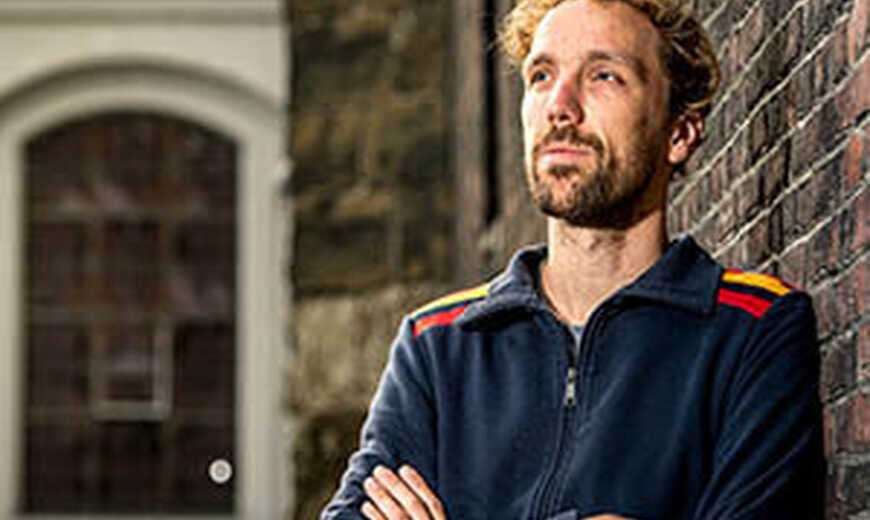Interviewer: Professor Urbain, it is exciting to interview you for the BAPS newsletter. Not only have you developed a successful research line focused on the neuroscientific investigation of the (a)typical development of cognitive functions, but you also served as the Vice Rector for Sustainable Development at Université libre de Bruxelles (ULB) from 2020 to 2024.
Let's begin by introducing your research. After completing your PhD at ULB and a 3-years postdoctoral fellowship at the Hospital for Sick Children in Toronto (Canada), you were appointed as a FNRS Chargée de Recherches then as a Professor at ULB. Your research uses a variety of techniques to study how brain activity and functional brain connectivity support the typical and atypical development of cognitive functions. Could you tell us more about it?
Professor Urbain: My research focuses on understanding the mechanisms that support learning, with a particular emphasis on how functional connectivity processes occurring during sleep or at rest play a role in cognitive development. During my postdoc at the Hospital for Sick Children in Toronto, I worked at a world-renowned center for advanced pediatric research using neuroimaging techniques. We studied both typical and atypical brain activity in children, especially in relation to disorders such as the autism spectrum disorder or atypical development in the context of children born very preterm.
At ULB, I continued exploring topics such as childhood epilepsy and learning disabilities in (at)typically developing populations. We aim to understand how different conditions relate through specific functional connectivity processes, especially looking at how brain regions interact during learning and subsequent offline consolidation processes. In children with atypical development, these interactions are often disrupted, which can help understanding some co-morbidity of learning disorders.
We also look at network disorders, particularly how brain networks involved in memory processes are altered in conditions like autism spectrum disorder. Our work blends fundamental neuroscience with a clinical perspective, which is one of the key characteristics of our lab.
I co-lead a research unit within the CRCN (Center for Research in Cognition and Neurosciences), which is part of the ULB Neurosciences Institute. This institute brings together different sectors of the university to approach neuroscience from a cross-disciplinary perspective. We also collaborate with international researchers, as well as local researchers from the Laboratoire de Neuroanatomie et Neuroimagerie translationnelles, which is located at the Hôpital Universitaire de Bruxelles. This lab is equipped with cutting-edge technology, such as magnetoencephalography (MEG), which offers exceptional temporal and spatial resolution—to investigate functional brain processes and a combination of neuroimaging techniques that is unique in Belgium.
In terms of our research focus, we study learning and memory processes through a very neuroscience-oriented lens, with particular attention to factors like time and sleep. Sleep, in particular, is a fascinating area for us—it’s not just a period of rest for the brain, but an active phase in memory consolidation and cognitive development. How the brain develops, and how sleep interacts with the child development, may significantly influence learning outcomes.
We’re also exploring a new research line that looks at the impact of motivation and emotional valence on learning. This is a complex field, with an interest in the intersection of educational, clinical, and societal perspectives. Emotional information tends to be encoded and consolidated more effectively than neutral information, and this may be even stronger in children compared to adults.
Interviewer: Sleep is known to be essential for memory consolidation, how?
Professor Urbain: At the beginning, new information is encoded in localized brain regions, particularly in the hippocampus (depending on the type of content). Over time, and particularly during sleep, the brain reorganizes this information, a functional process that may partly relate to slow-wave activity during sleep. The memory traces are reactivated, and information is thought to be transferred to more widespread cortical areas, allowing for a better integration of information into pre-existing knowledge. These sleep- (or even time-)dependent plasticity and reorganization processes may have various implications in the development of children’s representations but also motor, language, and executive functions.
In 2020, we published evidence showing that children have more powerful sleep-dependent memory consolidation than adults which echoed with a previous neuroimaging study of our group highlighting that, after only 90 minutes of sleep (nap) memory traces reorganize between the hippocampus and the cortex in children, where longer timescale may be required to achieve similar results in adults.
Interviewer: How can your work help develop new therapeutic avenues for neurodevelopmental cognitive disorders? Where is your field heading in the future?
Professor Urbain: While our research is fundamental, I am very committed to ensuring that it is grounded in real-world applications, particularly for learning disorders. I am also passionate about participatory research and citizen science, as these global challenges require collective action. As a researcher, I feel it’s important to build closer connections with society and see how research can serve public health and educational issues.
Interviewer: As you mentioned earlier, you served as Vice-Rector for Sustainable Development at ULB and still play a role as counselor for the transition of education/research for sustainability in your university. What prompted you to take on this important role at your university?
Professor Urbain: One of the most important responsibilities we face as a university is addressing environmental and climate challenges.
When I was invited to take on the role of Vice-Rector for Sustainable Development, I had only been a Professor at ULB for three years.
Taking on this role was definitely challenging. However, I found that both responsibilities complemented each other. I learned a great deal by working closely with the university administration and Professors/scientists from other Faculties, and it was incredibly rewarding to see the dedication of these colleagues to sustainability goals. It was an amazing experience, and I feel energized by what we were able to achieve together.
Interviewer: What achievements for sustainability at ULB are you particularly proud of and would like to share with us?
Professor Urbain: I am particularly proud of the cross-disciplinary course on sustainability that we launched in 2022. Another key achievement is the creation of the interdisciplinary research institute dedicated to social and ecological transformations. We also established a ULB network which aims at bringing together students, administrative members and faculty teachers/researchers from different disciplines to engage with sustainability challenges at university.
On an inter-university level, ULB has worked with other universities from the Federation Wallonie Bruxelles, to develop a comprehensive socio-environmental chapter in the memorandum ahead of the June 2024 elections. This was an important step in aligning French speaking academic institutions as it allowed universities to present a united voice to policymakers.
One of the recommendations was to give academics more time to incorporate sustainability topics into their teaching, as the increasing number of students has led to greater workload pressures. At ULB, we’ve introduced sabbaticals focused on sustainability, allowing voluntary teachers to integrate these crucial topics into their course.


